In this post, we want to look at some of the best tools for freelancers that help you save time and effort. Remember: it’s really a matter of saving time in all aspects of business, not just when completing projects. So if you can find a set of tools that reduce the time spent on handling finances, scheduling meetings, and communicating with clients, you should probably jump at the opportunity.
We’ve put together a healthy list of freelancer tools that tackle several key categories. These include organization, time-tracking, communication, productivity, invoicing, and more. That way, you don’t have to go hunting them down yourself and you can immediately put them into practice.
Sound good? Then let’s dive straight in.
Organization and Scheduling
Keeping your schedule sorted is one of the biggest potential time wasters around. Just the entire process of setting up meetings and keeping track of them can be daunting. Especially when you’re dealing with multiple team members and clients. Similarly, maintaining and organizing notes, to-do lists, and other important assets is essential when your projects have a lot of moving parts. Let’s take a look at several calendar, scheduling, and note-sharing tools now.
1. Calendly
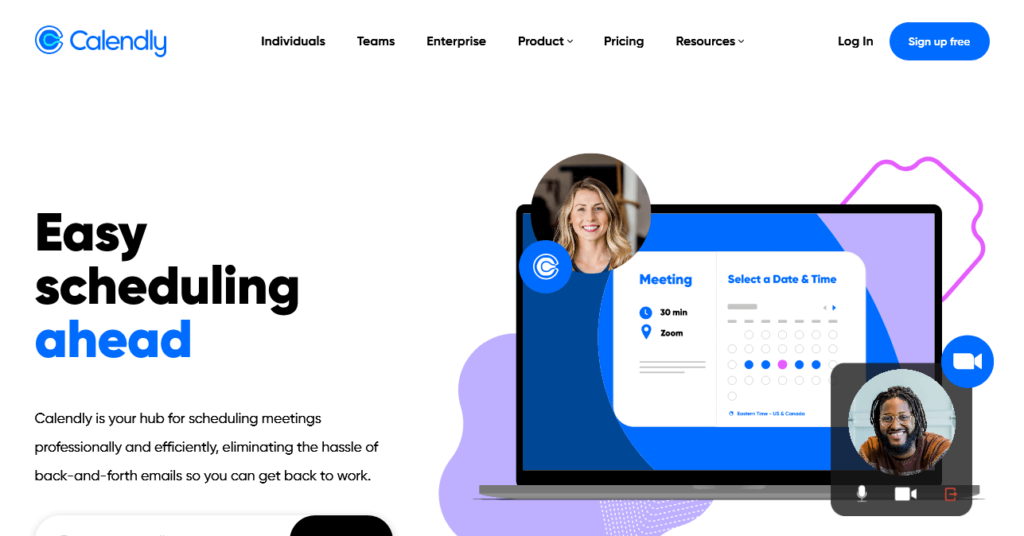
What makes Calendly one of the best tools for freelancers? It’s ability to save time on scheduling meetings and to keep important work communication in one place. Using it is super easy: just establish a simple set of rules including your availability, share a link with those you want to schedule a meeting with, then wait for them to select a time and book a meeting with you. Their information will automatically be added to both of your calendars. It sends email or text reminders automatically, too.
2. Google Calendar
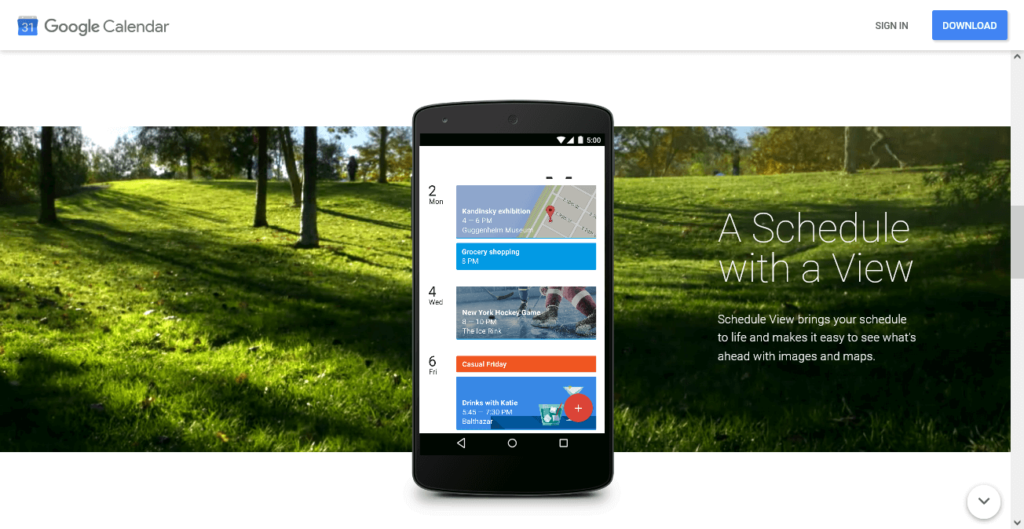
Pretty much everyone has Google Calendar but it’s worth a mention because of its ease of use, accessibility, and familiarity. Most people know how it works and it’s likely already part of your standard workflow. Google Calendar can set up meetings with several attendants and send out automatic reminders as well. Plus, since most people have it already, there will be virtually no questions about how it works levied at you.
3. MeetFox
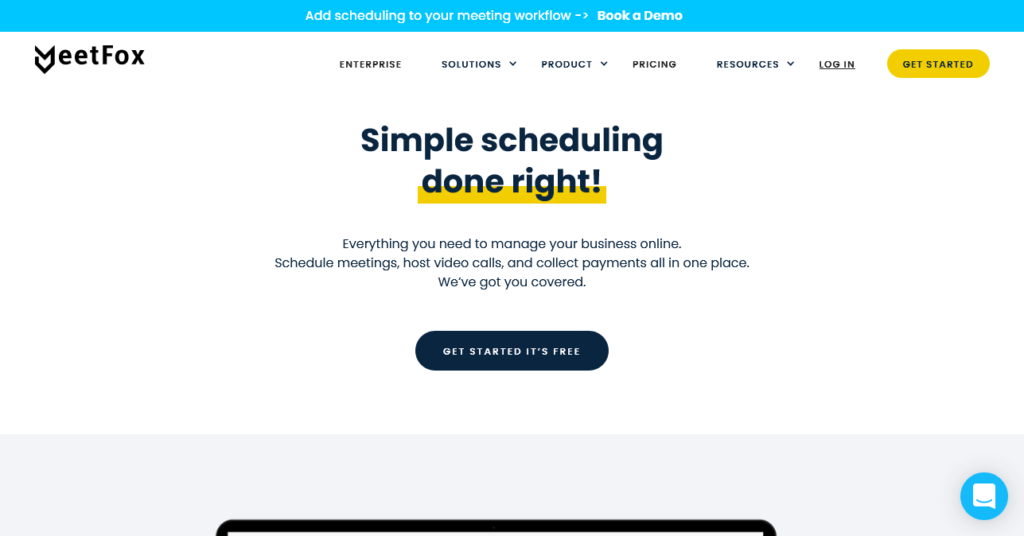
Another option is MeetFox, which is a scheduling and meeting software in one tool. It’s actually quite similar to Calendly in terms of features and interface. Yet, the integrated conferencing tool does make it stand out from the competition.
4. Notion
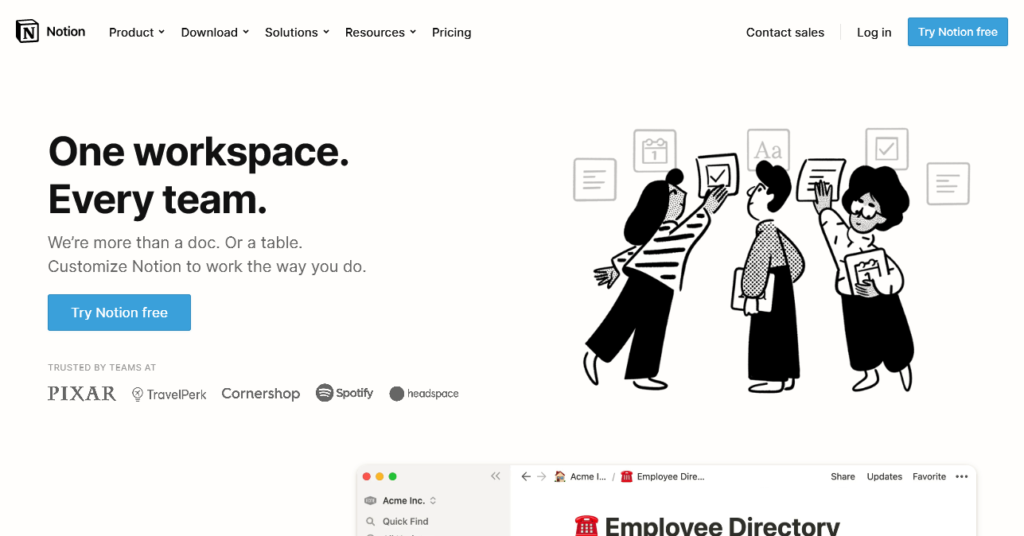
To streamline the taking and sharing of notes, there’s Notion, which provides an extremely simple platform for storing notes, to-do lists, passwords, documents, and images all in one place. And this information can then be shared across an entire team (including your clients) for easier access and streamlined communication.
5. Evernote
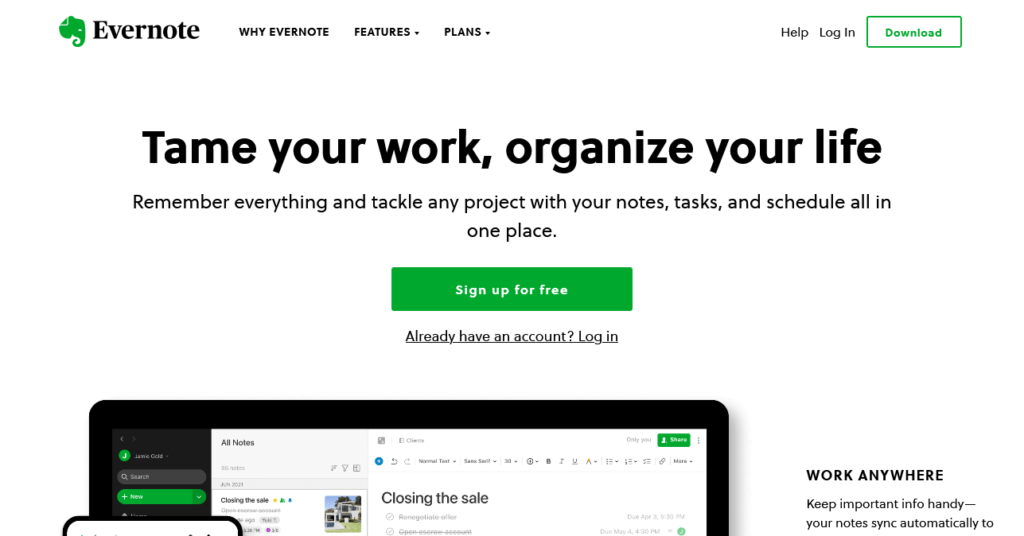
Another super helpful note-taking tool. Evernote provides a platform for desktop and mobile devices that houses relevant notes for all of your projects. It also allows you to share specific notebooks with clients or team members or provide access to all of your notes if needed.
6. Todoist
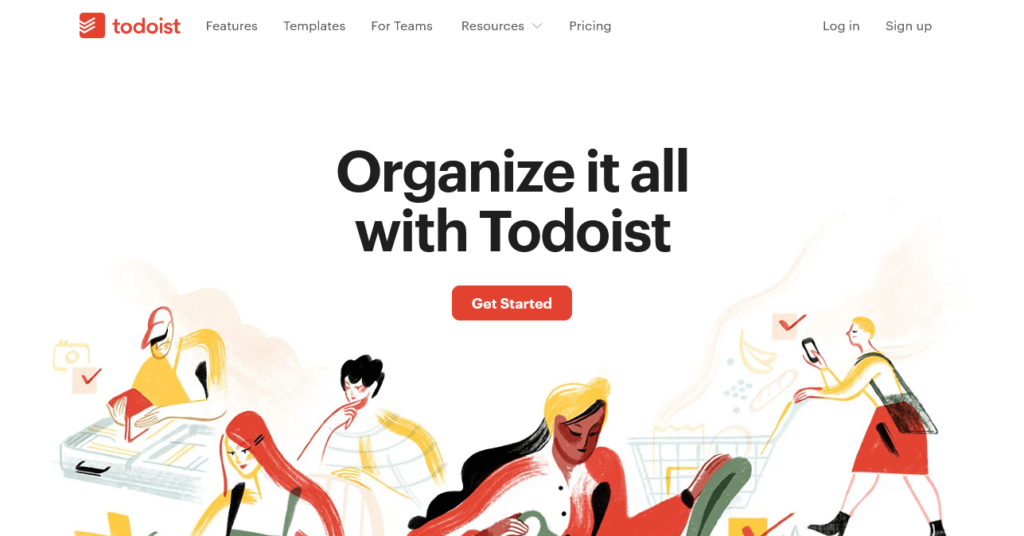
Then there is Todoist, which serves as a super simple app that helps you stay on task as well as remember what’s coming up. With it, you can add priorities, notes, assign tasks, and add comments. And with colorful graphs for tracking progress, it can serve as a real productivity booster as well.
Time Tracking and Invoicing
Another aspect of managing freelance work is keeping track of the amount of time you work on projects. Often, this also relates directly to how you compile and send invoices to clients. That’s why we’ve combined these categories of tools, as they often work in tandem.
7. Harvest
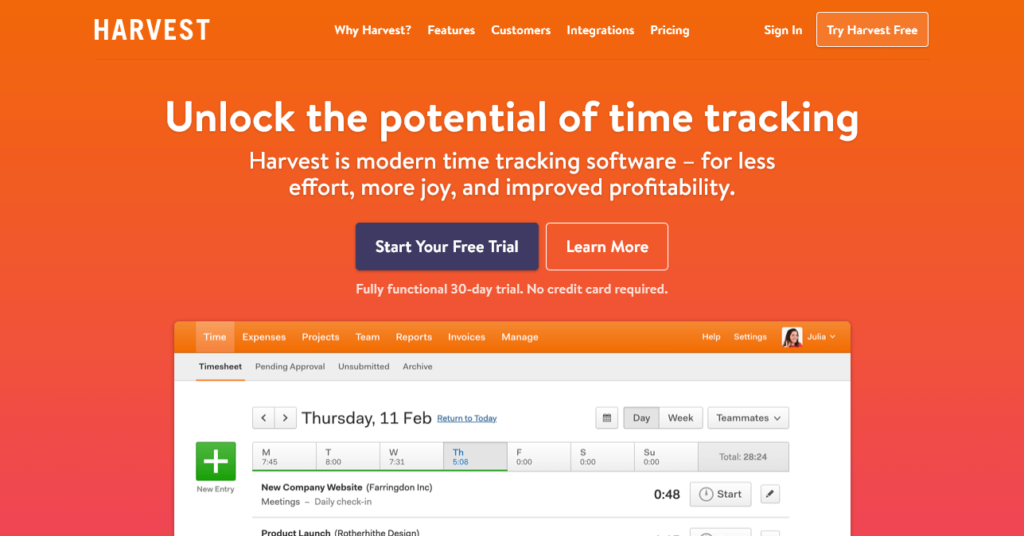
First up is Harvest, one of the most popular and best time-tracking tools that both companies and individual freelancers make regular use of. It’s layout is familiar to those who’ve kept financial records or timesheets before but it offers a timer feature for recording time spent on projects and individual tasks.
8. Toggl

Next up is Toggl, a straightforward time tracker and one of my personal favorites. It provides a multitude of filters and features for keeping tabs on your time spent in a convenient and intuitive way. And when it’s time to invoice, you can compile tasks within a project to send a comprehensive bill.
9. Clockify
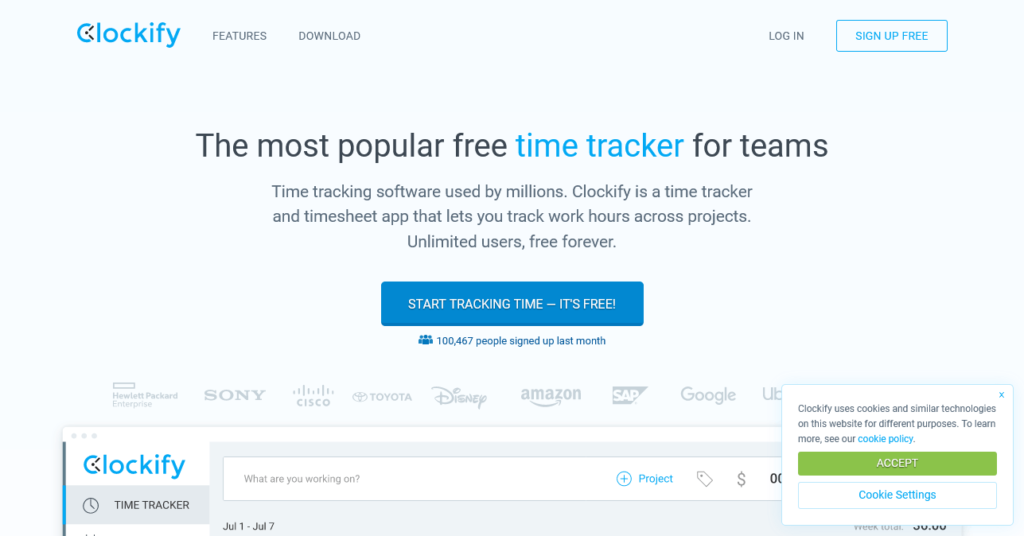
For a more integrated experience, there’s Clockify, which has a Google Chrome extension that adds the ability to clock in or out directly into your browser. You can add titles and descriptions to each work session for easier tracking and to create an invoice. It doesn’t get much easier than that.
10. Bonsai

Another option freelancers may gravitate toward is Bonsai. It serves as a way to create contracts and invoices all from within one service. Bonsai provides numerous templates that you only need to customize and then put to use. You can also have clients e-sign your contracts through the same software.
11. FreshBooks

Alternatively, if you’re looking for more of an all-encompassing bookkeeping solution, FreshBooks is a solid choice. It is a premium service but priced competitively for freelancers. The service provides easy importing, connectivity with your bank account, and integration with popular apps.
12. Gusto

As your freelance business grows, more complicated tax accounting may be required. That’s where Gusto can be really helpful. It’s essentially a streamlined payroll service with S-CORP and LLC businesses in mind.
Communication
The next category on our list of tools for freelancers is communication. We’ve already touched on it briefly in some of the categories above. But here, we’re highlighting some tools that offer communication as their top feature. Think chat interfaces, meeting software, and conferencing tools.
13. Slack

One of the most popular communication platforms for freelancers is Slack. In fact, it seems like almost every company is using it right now for managing communication amongst team members and clients. It essentially eliminates the need for a million emails, fosters collaboration, and keeps conversations organized in one place. Slack also provides great compatibility with other tools, offering integration with Google Drive, Asana, Trello, Remoty, and more.
14. Boomerang
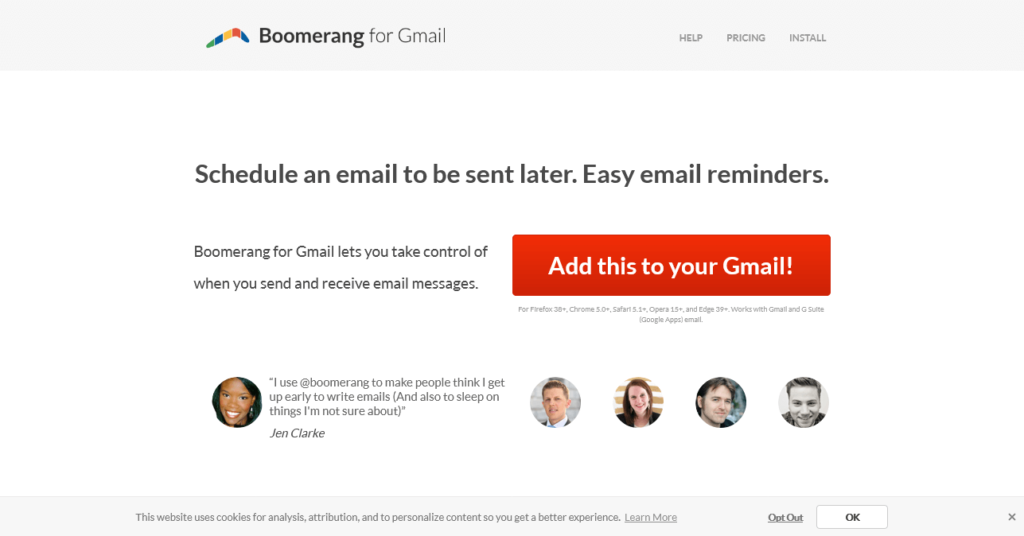
If you want to continue using email but have a better handle on it, Boomerang is a great tool to check out. It offers a streamlined way to read, prioritize, and respond to emails. But its standout feature is the ability to schedule email replies. So, you can write a response to an email in the middle of the night but schedule it to send first thing in the morning. That way, people won’t get the impression that they can communicate with you at all hours (boundaries, yay!).
15. Hunter.io
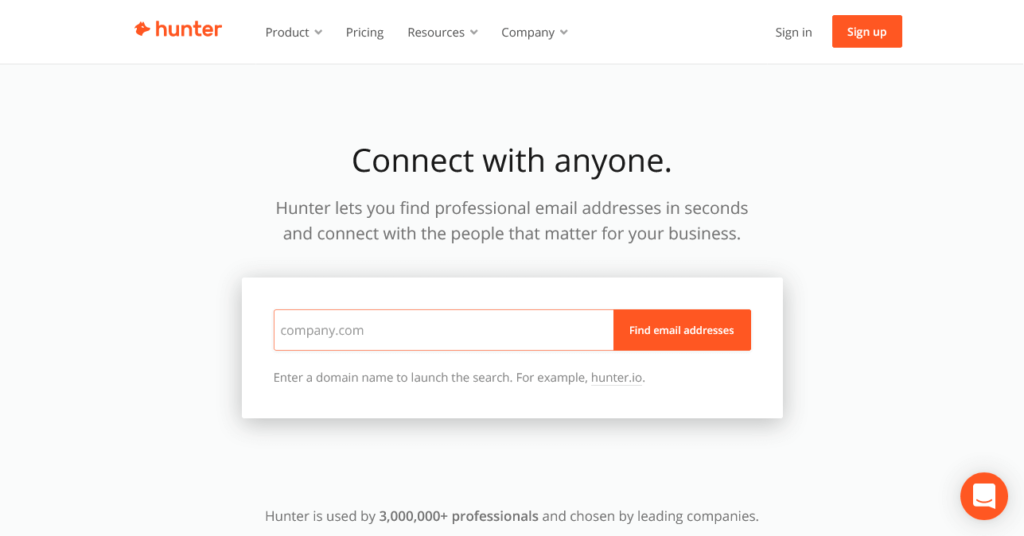
Related to the above, there’s Hunter.io. While it doesn’t serve as a communication platform, it does help you locate the email address of people you want to contact, pitch, or otherwise communicate with.
16. Google Meet
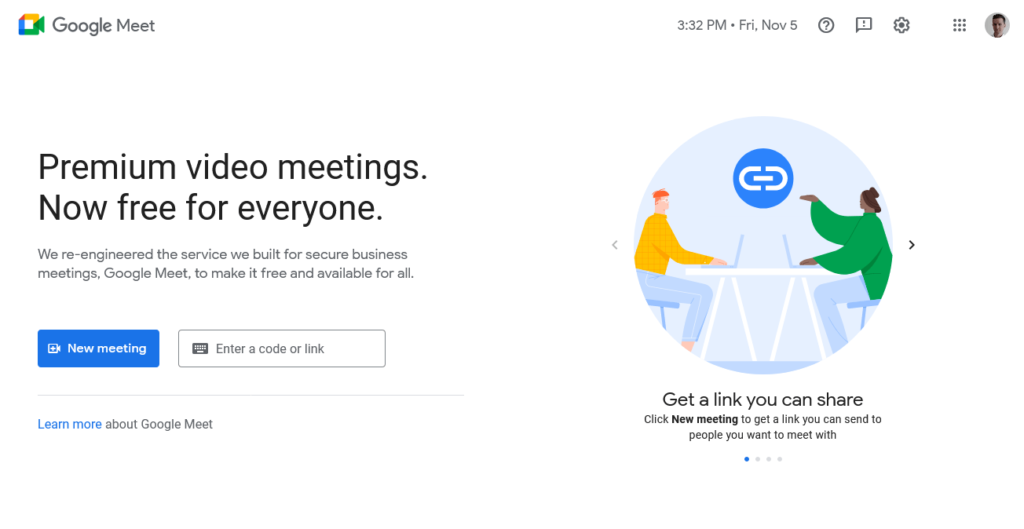
Formerly known as Hangouts, Google Meet provides a convenient way to connect with team members and clients virtually for video conferences and calls. Since it’s a part of the Google ecosystem, most people will have an account already and it’s free to use.
17. Zoom

Does this one even need to be named? Since the pandemic, Zoom is the premier way to conduct online conferences and webinars with people all over the world. It’s free to use for conferences of up to 40 minutes and inexpensive paid plans offer longer conferences with more participants.
18. Skype
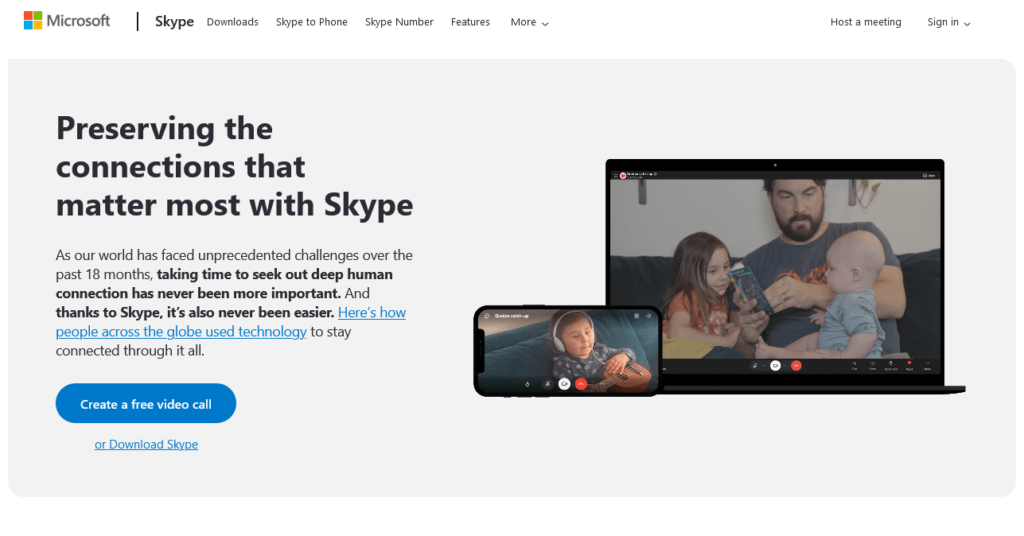
A time-tested choice, Skype allows you to make video calls with people online. It’s free to use over wifi but does offer paid options if you want to call international phone numbers, too.
Productivity and Project Management
Our next category will cover the best productivity and project management tools for freelancers. These are basically time-saving tools that help you stay on task and keep everyone you work with on the same page.
19. Trello

Trello is a popular project management tool that lets you create boards for each project or client which you can then populate with cards for assignments or tasks. It’s really flexible and visual and lets everybody see exactly where everyone stands in their workflow. It also integrates well with many apps and services and you can extend its functionality with calendars, checklists, to-do lists, due dates, and more.
20. Basecamp
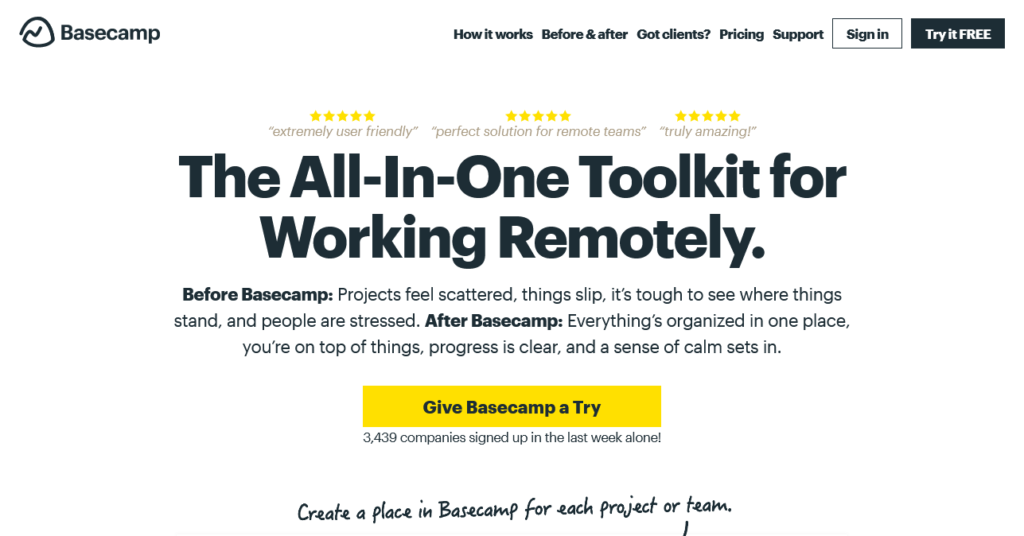
Next up is Basecamp, which is another project management tool that provides a one-stop shop for organizing information and assignments for projects. It’s ideal for teams and lets you add checklists, storage for relevant files, and a message board system.
21. Asana
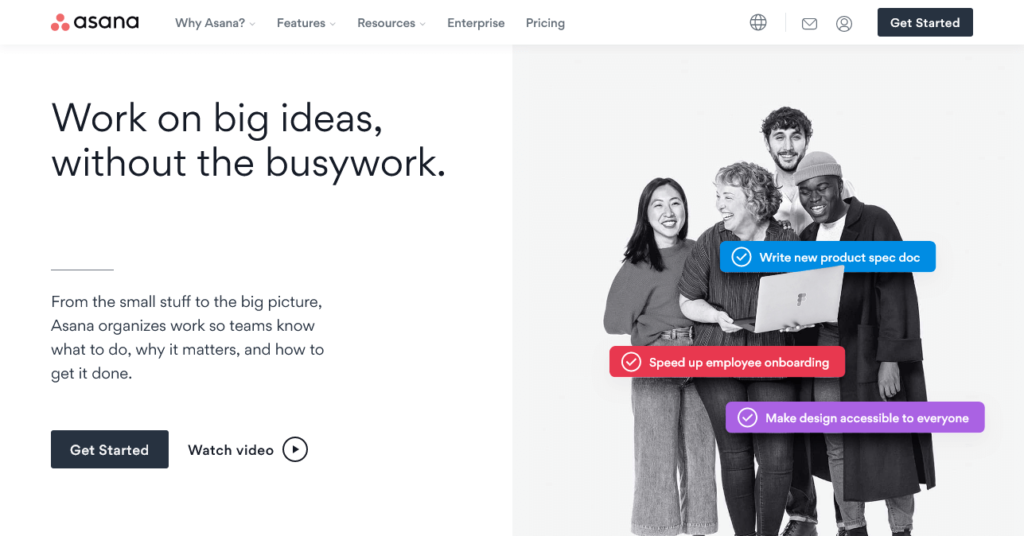
Or maybe Asana will be your preferred project management tool? After all, it comes chock full of features and can be extended or adapted to suit all different types of projects. Most often, it’s used to manage specific large-scale projects. Or, most commonly, you’ll find yourself added to a client’s Asana account for collaborating on one of their specific projects.
22. Monday.com
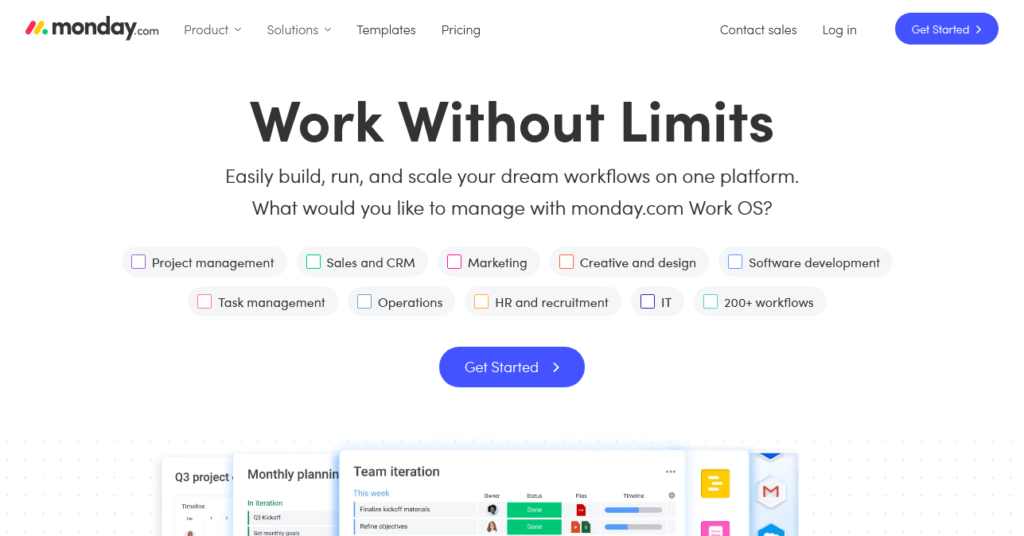
Still another option is Monday.com, which offers a different approach to project management. If you’re a fan of charts and spreadsheets, this service is a solid choice. It makes it really easy to see where everyone is on a project from a bird’s eye view. A standout feature here are the progress trackers which act as a visual aid for seeing how far along a project has progressed both at a task level and at a project level.
23. StayFocusd
As for productivity, StayFocusd is a super helpful tool you can use to stay on track. It’s a Google Chrome extension that blocks your access to websites deemed “time wasters” (in particular, social media sites). That way, you can stay on task without tempting distractions at your fingertips.
24. IFTTT
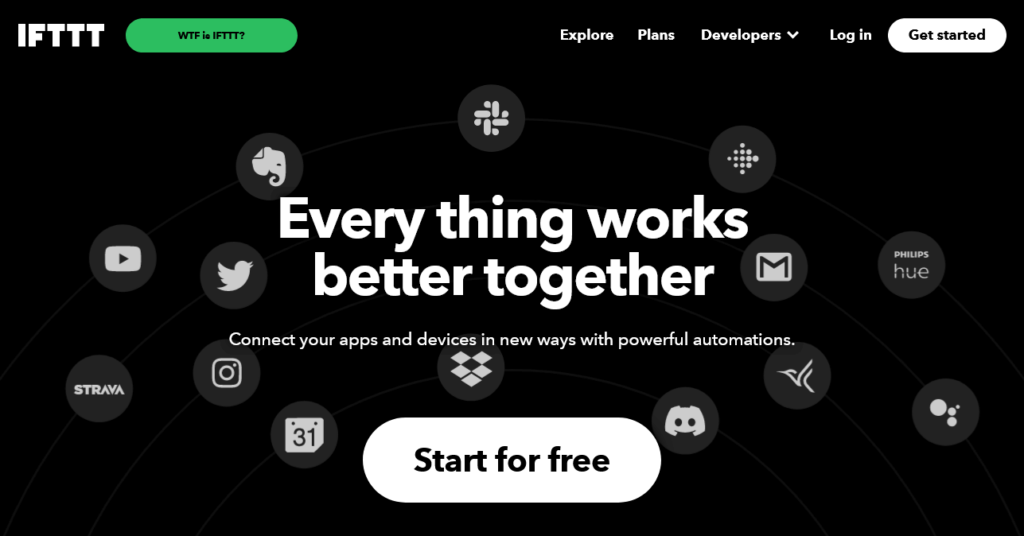
Speaking of social media, actively sharing on these platforms can take a lot of time. IFTTT, which stands for If This, Then That, is a tool you can automate your marketing with. Want to post to your social accounts each time you publish a blog post? This will take care of that. Likewise, pre-made applets can help you automate other aspects of your workflow and even your home life.
Design and Writing
The last category we’re covering in this best-of tools for freelancers is design and writing tools. Basically, tools for completing or streamlining your freelance work. Let’s take a look.
25. Canva
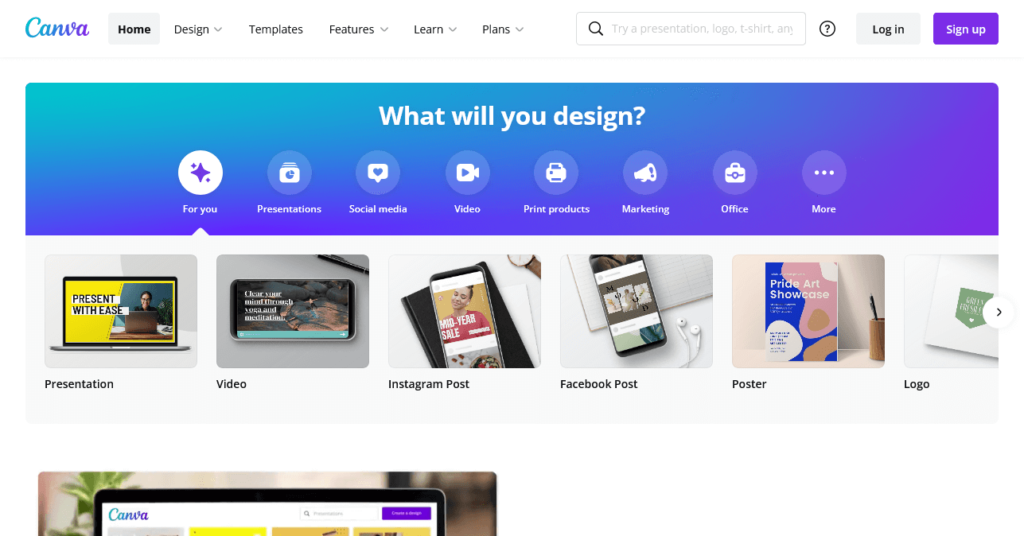
First up is an easy-to-use graphics tool called Canva. This service offers a wide range of templates to choose from for creating social media posts, printed materials, reports, and more. It’s also free to use but if you want access to a wider range of stock photography and illustrations (as well as more templates and assets) you’ll need to pay a subscription fee.
26. Grammarly

Another great tool is Grammarly, which you can use as a standalone service or as a browser extension. It works by adding a more in-depth grammar checker to your writing work. It’s free but there is a paid plan available that provides more in-depth suggestions for improving your writing.
27. Hemingway
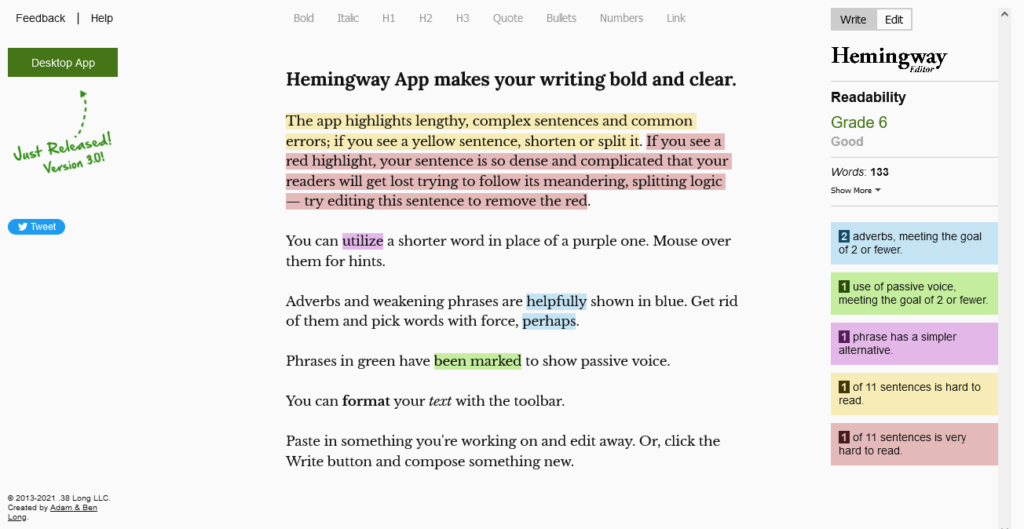
Another writing tool you might wish to consider is Hemingway. This one is a free app that checks your grammar, offers a variety of suggestions for improving your writing, and other insights like a readability score that you can apply to your work and/or submit to clients.
28. Affinity Designer
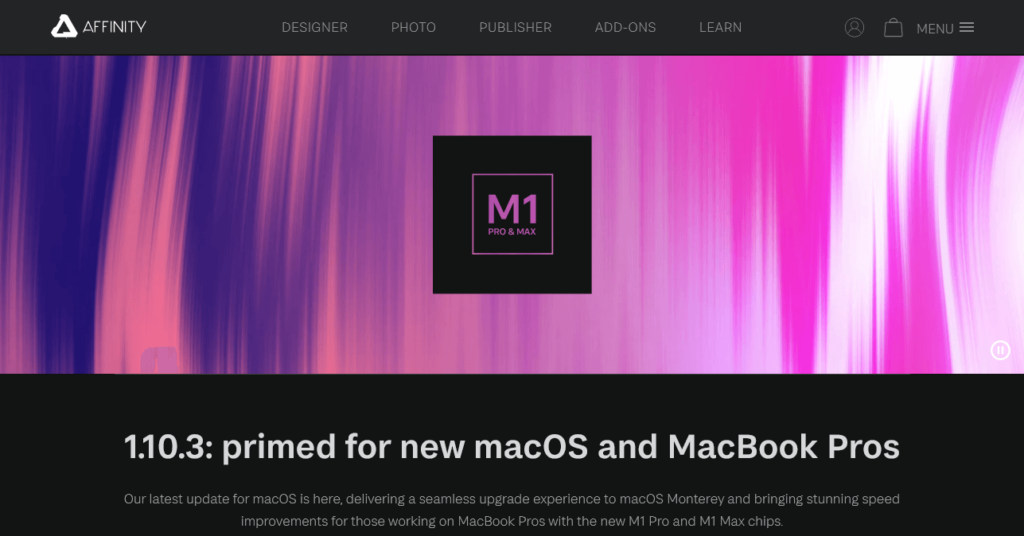
Even if you don’t work in design specifically, it’s still a good idea to have a tool around for creating mockups or quick graphics for projects. Affinity Designer is that tool. Plus, it has a much more reasonable price tag than many competing software options like Adobe Creative Cloud.
What Are Your Favorite Freelancer Tools?
Honestly, this is just the tip of the iceberg when it comes to tools out there for freelancers right now. But hopefully our curated list will help you start out with some of the best available in your backpocket. Now, what are you waiting for? Give these tools a try and see which will best fit in with your workflow.
What are your favorite helpful tools for freelancers? Let us know in the comments below!

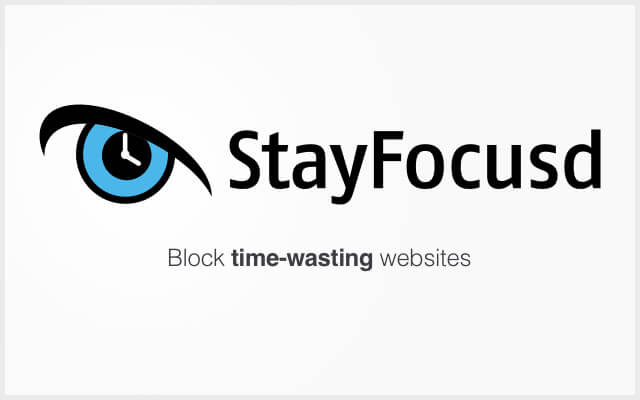
5 Comments